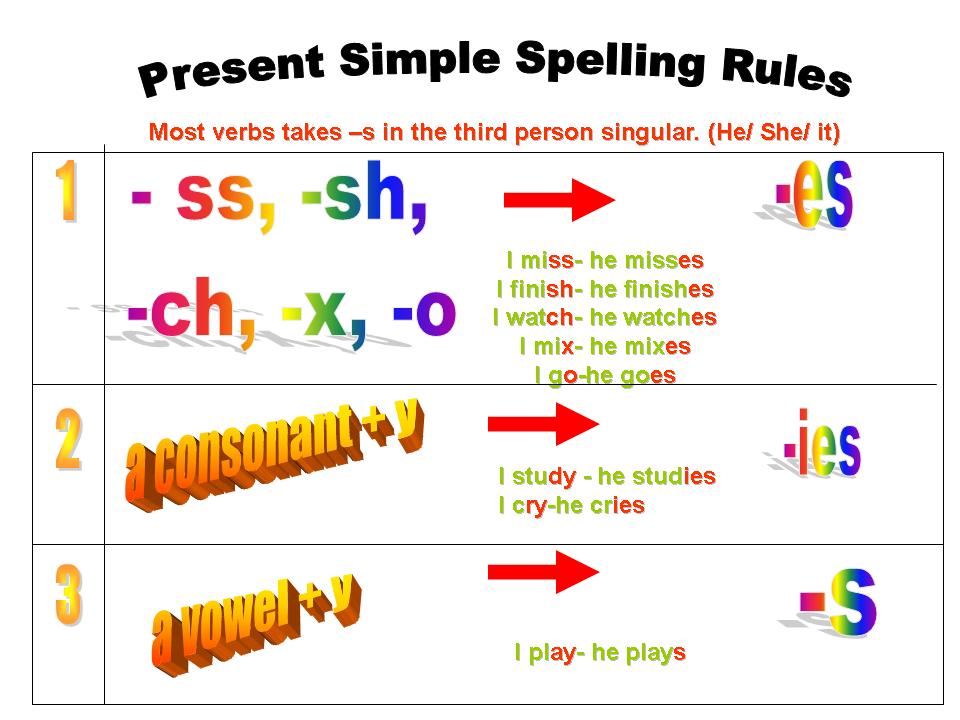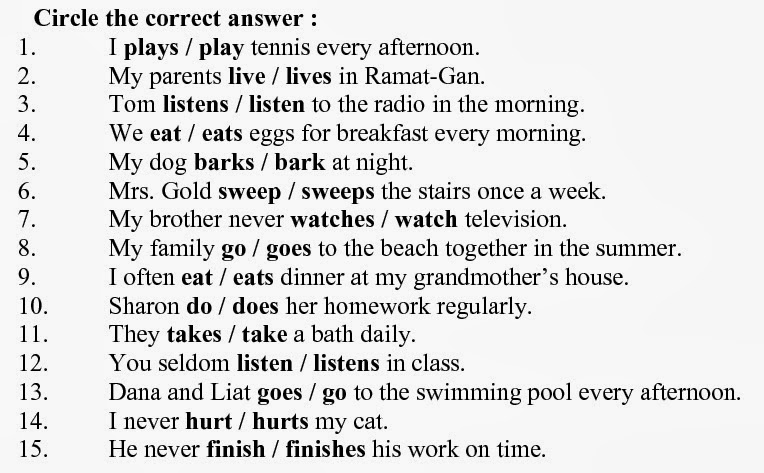A. Simple Present Tense

1. We use the simple present tense to state a repeated or habitual action.
Examples:
- Ahmad waters the plants every morning.
- We play hockey every afternoon.
Examples:
- Sheela lives in Jerantut.
- Mother buys groceries at the nearby mini market.
Examples:
- The sun sets in the west.
- Sarawak is the largest state in Malaysia.
Examples:
- The train leaves at 11.00 in the morning.
- The meeting begins in an hour time.
Examples:
- Clean the windows.
- Keep all your books now.
Examples:
- If you finish your work, you can follow us to the cinema.
- If he is well, we can take him to the zoo.
Examples:
- Coyotito is stung by a scorpion.
- The cats are chased by the naughty boy.

B. Present Continuous Tense
1. The present continuous tense is used for an action happening now.
Examples:
- I am cleaning the fish.
- The boys are playing handball.
2. The present continuous tense is used to show an action that is often repeated.
Examples:
- The girls are always arguing with each other.
- Sam is always talking about his new girlfriend.
3. To explain an action that is happening about this time but may not be at the moment of conversation.
Examples:
- Kasmah is preparing dishes for the party.
- The students are in the hall. They are attending a seminar on drugs.
4. To express a future action that has been planned.
Examples:
- I am baking a cake this weekend.
- We are leaving for Sabah tonight.

C. Present Perfect Tense
1. The present perfect tense is used to show an action just completed.
Examples:
- I have completed my homework.
- We have just finished our dinner.
2. To show an action that began in the past and is continuing up to the present time.
Examples:
- Karen has been working for the company since 2002.
- We have known the Tan family for more than ten years.
3. For an action which happened at an indefinite time in the past.
Examples:
- The children has finished their homework.
- We have already fed the cats.
4. It is used in passive voice.
Examples:
- The school has been repainted.
- The banners for the seminars have been put up.
D. Present Perfect Continuous Tense
1. The present perfect continuous tense is used to express an action which began in the past and is still continuing.
Examples;
- It has been raining since yesterday.
- They have been practicing the song since this morning.
2. A repeated action in the present perfect tense can sometimes be expressed as a continuous action by the present perfect continuous.
Examples:
- I have read five chapters of that novel since this morning.
- I have been reading since this morning.
- Rani has played the piano six times since lunch.
- Rani has been playing the piano since lunch.
Exercise 1
Fill in the blanks with the correct simple present, present continuous, present perfect or present perfect continuous tense.
1. Yap always _______ to the coffee shop for a cup of coffee. (go)
2. You must register early because the course ______ on Monday. (start)
3. The postman ______ letters to our housing area late. (deliver)
4. If you _______ me early, I may consider going there. (inform)
5. Don’t make noise because the baby ______ now. (sleep)
6. We are happy that we _____ the project. ( complete)
7. Longans _______ at the stalls over there. (sell)
8. A baby usually ______ when she is hungry. (cry)
9. The sick child __________ his medicine. (take)
Exercise 2

Exercise 2

No comments:
Post a Comment